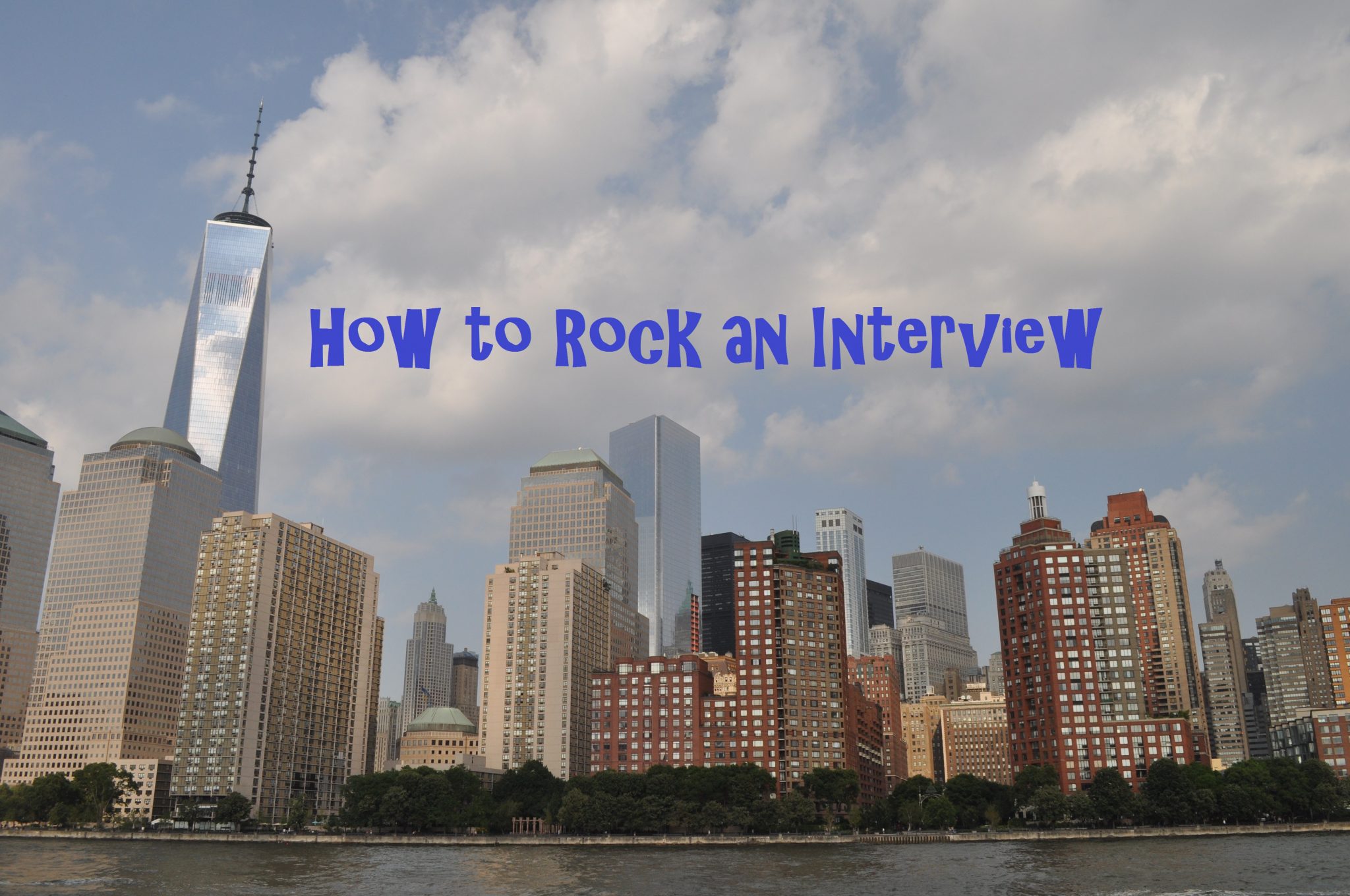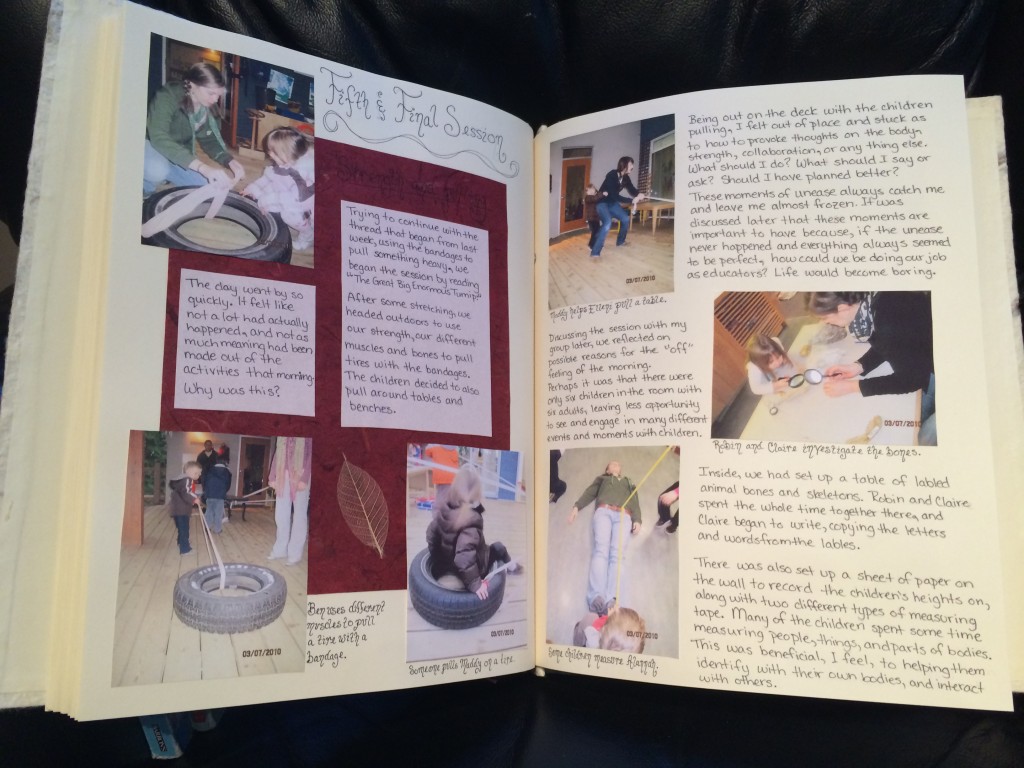
Last week I received notice that I’ve been accepted to work part-time for a fantastic drop-in program for families with children 0-5. I am so excited to start off my new placement with a 2-hour orientation tomorrow morning!
This great news didn’t really come as too much of a shock to me. I don’t want to sound conceited, but I have never been to an interview where I wasn’t offered the job, either on the spot or shortly afterward (and not for lack of interviewing, either – I’ve held a wide variety of positions since I was 14). I felt pretty good in and after this interview, so I had an inkling that it had gone successfully enough to have impressed my way into yet another job.
So what is it that makes for a successful interview? I’d like to share some of the things that I do that I believe play a big part in wowing human resources and potential employers, so that you, too, can rock your next interview.
Take a Look at Yourself
You want to show a potential employer that you’re ready and capable of showing up for the job dressed appropriately to do the work you’re applying for. The general rule here is to dress appropriately for the level of job above what you are applying for – slightly dressed up from what you would normally wear day-to-day. For me, working with children in an active and often messy creative environment, I’d usually be wearing clothes that are comfortable and flexible enough to move with me all day while I crouch, bend, run and otherwise contort my body into the activity of the moment, that I don’t mind being covered with paint, cover any cleavage, don’t show off my underwear when I bend, and otherwise cover my body appropriately. My shoes need to be flat and comfortable, too.
To dress it up for the interview, this means I’d put on an outfit that hits all those appropriate points, but I’d choose something nice that I probably wouldn’t want to wear around paint and glue. A pair of dress pants and a nice blouse, or a pretty dress with leggings and a blazer. Maybe add some jewelry that I’d keep at home when I went to play with the kidlets. I’d still stick to a pair of attractive flats as opposed to heels, as I’d want my interviewer(s) to know I am familiar with being on my feet and dress for function rather than appearance. As an “I made sure I put effort into my appearance today” statement, I’d also throw on a bit of makeup (likely just mascara for an ECE job), which I usually wouldn’t wear for working with children – not because they don’t deserve to have me looking “all done up”, but because I don’t feel good about perpetuating the already strong ideals about beauty and expectations of girls and women. I have a lot to say about this, but I’ll save that for another post.
Be prepared
Before you get to the interview, take some time to think about what questions you might be asked. For a job in childcare, you’ll probably want to give yourself a quick refresher about child development and handling conflict or peer interactions. What would you do if Timmy starts hitting Sally? How do you communicate with parents who are concerned that Johnny isn’t able to recite the alphabet, spell his name or write algorithms yet? Practice in your head, or to a partner or friend, what you would respond with. Think about the different ways you could slide into about the best parts of yourself and your abilities if they don’t directly ask. Have concrete examples in mind, ready to back up what you have to say.
Make a Connection
Sometimes the person or people running the interview will mention a little about their day so far as they welcome you into the office. Don’t brush this off – use it to your advantage and make a real-life connection with them. “Oh yes, it is a beautiful day out there! Will you get a chance to enjoy it later?” or if they’re running late “No problem! I don’t mind waiting another minute if you need to take a quick break to refill that coffee mug.” If you’re not offered a piece of real-life from them, take a quick peek around their space and try to find something to make a quick connection over. Do they have a picture of their children or a pet on their wall? A nifty lamp? It’s always nice to let a person know you see them as a human being, and not just a means to a job.
Bring supporting documentation
Don’t expect that the interviewer will have printed out your resume, cover letter, and letters of reference and have them on the desk for the interview. It’s very likely that they will have done that, but not always, and it’s definitely a plus if you can show that you came prepared – it shows you’ll also likely come prepared with what you need for work.
Beyond the regular pieces (resume, certificates, etc), I find a fantastic way to wow a potential employer is to bring real life examples of your work. Sharing this with interviewers is a great way of helping you explain how great you are at your work, and the pride you take in it, without really having to say much. It will also help remind you of things you want to point out to employers about your work, and gives the interviewer a bit of a break from the general ho-hum of their umpteenth sitting with an applicant. It will put a gold-star on your interview notes, and they will remember you.

In the world of Early Childhood Care and Education, you were probably required to put together documentation of specific projects you instigated or furthered with children while you were in school. Pictures, words, information and reflections of activities and investigations with children. If you didn’t do this in school, maybe it’s time to start. Before you go scrapbooking all your best preschool documenting photos, however, make sure you have parental consent in writing for any images featuring little ones.
Talk yourself up
Don’t be too shy or too meek to offer your interviewer with what they really want to know – why you’re so great at what you do and why they need to hire you. Yes, it can feel a little boastful to tell them how amazing you are at a bunch of different things, but that’s what you’re there for. They’re not looking for someone who’s okay at what they do, they want someone who’s the best at it, and who feels confident that they really do have something to offer.
When I’m asked what my strengths are (a fairly common question for any interview), I list off a number of qualities, with concrete examples, then when I feel I’ve given a good amount of things to consider, I ask them “Would you like more?” What you’ve already said is usually more than sufficient, but it’s a nice way to let employers know that your list of great qualities is a long one, and you’ll always have more to offer.
Ask Questions
At the end of the interviewers questions, you’ll often be asked if you have any of your own. It may not be a great idea to come prepared with a whole page worth of questions to turn the interview around onto the interviewer, but having a couple thoughtful questions about the job or company you’re applying to work for lets it be known that you are genuinely interested in finding a good fit for yourself. Save the self-serving questions, such as what the pay might be or if you’re entitled to a discount or special privileges, and instead ask questions that are valuable to the employer as well. For instance, if it is a centre for child care, are there “themes” predetermined for what the children will be offered to learn, or does the centre’s philosophy follow a child-led approach? Is there a schedule to be followed? What does a typical day/class look like?
I hope my tips help you on your way to getting that job! If you think these might help someone else, too, please share this post with the handy-dandy clickers below. Good luck!!